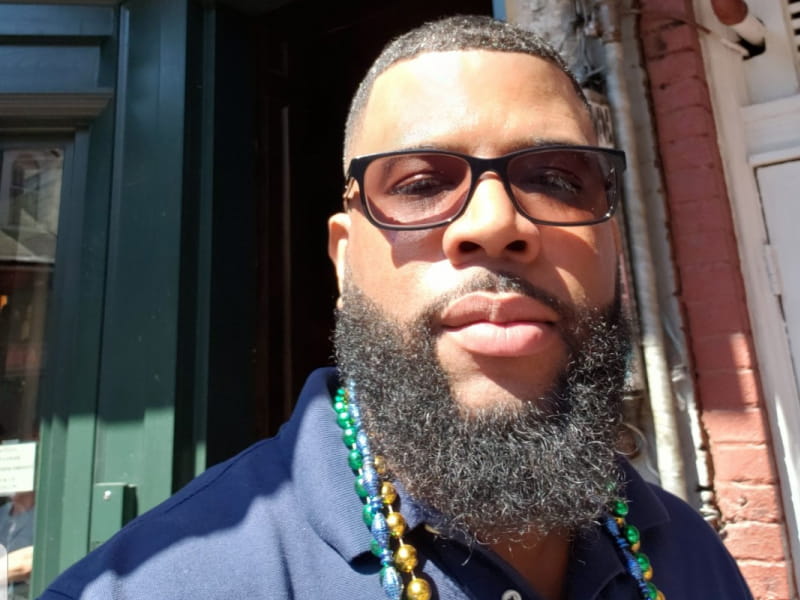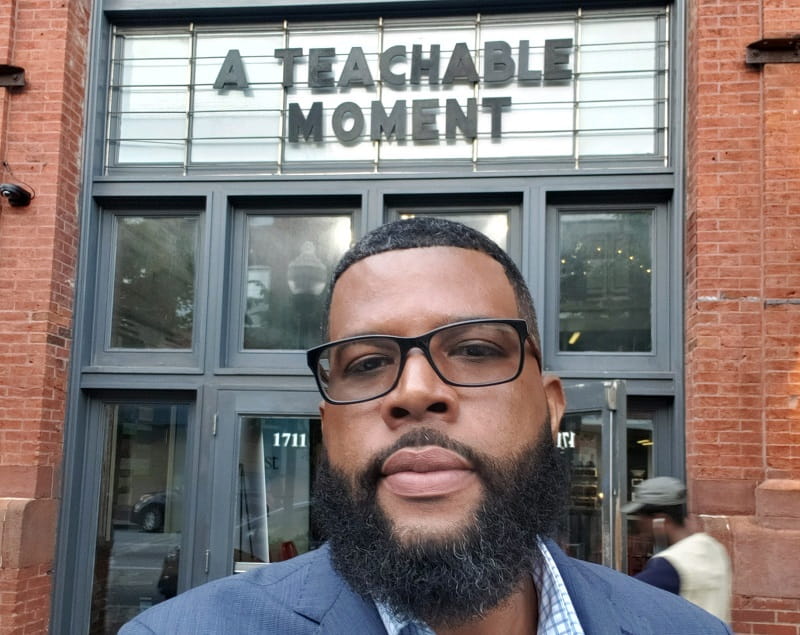At 38, he survived 3 strokes: 'It broke me down, but it also enlightened me'
By American Heart Association News

Lee Stroy was surprised when at age 38 his doctor told him he had high blood pressure. The doctor said it wasn't too extreme and wrote him a prescription to help get his numbers under control.
With Christmas a week away, Lee – a father of five – decided he would start his medicine in the new year.
But on the morning of Dec. 23, 2014, Lee woke up feeling incoherent and his limbs felt like they were asleep. Lee struggled to call out to his wife, Keturah. When he got her attention and she took a good look at him, the fear on her face made him cry.
"Call 911!" Keturah screamed.
Paramedics got a blood pressure reading of 190/120. At the hospital, doctors told Lee he had suffered a mini-stroke, a temporary blockage of blood flow to the brain known as a transient ischemic attack.
With no residual effects, Lee was scheduled for release Christmas Day. But he suffered two more strokes at the hospital during his sleep. These left Lee unable to walk or open his left hand. He had drooping on the left side of his face, lost peripheral vision in both eyes and suffered memory loss.
"Everything changed in that moment because I didn't know if he would ever be him again," Keturah said.
Lee spent a month in rehab. Far younger than most other patients, he struggled in every way.
"I was looking around like I was out of place, and I'm not even grasping that I can't even open my hand, can't even walk," Lee said. "My reality was in a state of denial and also delusional because I wasn't healthy."
Once home, Lee continued outpatient treatment for 16 months, attending physical, speech and occupational therapy three times a week. He struggled emotionally, fighting depression and anxiety. He wondered if he would ever walk or drive again.
He went from working 15 years at a federal credit union to receiving a disability check. His parents came from Florida to Virginia to help for a while. His mother-in-law and other friends and family helped take him to the doctor and watch his kids. His wife was left to handle not only the finances but also bathing him and all things in between.
"It is a truly moment-by-moment thing," Keturah said. "It's not day-to-day."
Lee changed his diet, quit smoking and took upwards of a dozen medications to keep his blood pressure and other ailments in check. He was subsequently diagnosed with diabetes and high cholesterol along with anxiety, depression and insomnia. He's now down to three medications.
Lee and Keturah both live with the fear that another stroke could strike. Nearly five years later, Lee still rubs his sides and checks his face every morning to make sure he is OK.
"Every day I'm gaining strength," he said. "My fatigue level is still low. My concentration, my memory is not as strong as it used to be. … I'm still trying to relearn to write."
On top of that, the sound of his young kids' playing can cause overstimulation, giving him headaches and making his left-side deficits reappear. Lee also had to learn how to reduce stress.
Having to relearn basic life skills gave Lee a fresh perspective. He learned to slow down, reprioritize and appreciate small accomplishments. He also gave himself grace for leaving the refrigerator door open or forgetting to turn off the stove, things he initially thought of as signs of incompetence.
"It broke me down, but it also enlightened me," said Lee, now 42. "It's all been a growth process. Initially I thought I was failing, but now I realize that's my new norm. There's nothing wrong with that."
Keturah calls her husband a "man's man," an athlete who has had to adjust to the body he's now living in. Even so, Lee said he really wants to dunk a basketball again.
"To still smile, still be positive, not just exist but try to live life to its fullest, I'm proud of him," Keturah said. "But every day it's hard."

On the advice of a friend, Lee began sharing his story and discovered it brings him peace. He is featured in "A Teachable Moment," a documentary about stroke on Amazon Prime Video. He also visits stroke patients in the hospital every other week and plans to start a nonprofit to help others cope with life after stroke.
"I look at things a lot different now," he said. "The glass is half full."
Stories From the Heart chronicles the inspiring journeys of heart disease and stroke survivors, caregivers and advocates.
If you have questions or comments about this story, please email [email protected].




